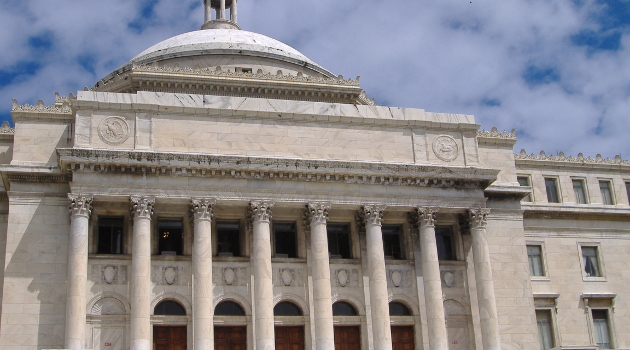This article originally appeared on The Daily Caller on May 24, 2016.
The updated “Puerto Rico Oversight, Management, and Economic Stability Act” (PROMESA), H.R. 5278, reintroduced last week by Representatives Sean Duffy, Rob Bishop, and Jim Sensenbrenner offers a bipartisan opportunity to prevent a Puerto Rican bailout. The bill provides a path out of Puerto Rico’s debt crisis without setting the dangerous precedent that a federal bailout would entail. Congress must now pass PROMESA so that Puerto Rico can begin the process of recovery from its irresponsible spending binge.
The heart of the revised legislation remains the establishment of a fiscal oversight board like those successfully modeled in Washington D.C. in 1996 and New York City in 1975. It is empowered to compel the adoption of responsible, balanced budgets and, where necessary, to close government agencies and reduce the island’s bloated government workforce.
The updated legislation also emphasizes the importance of voluntary restructuring negotiations with creditors, and prevents the island from ignoring its constitutional obligations. Though more could be done to protect creditors overall.
Crucially, the fiscal oversight board will have power to compel under threat of criminal penalty the disclosure of audited financial information that the Puerto Rican government has consistently failed to provide.
Admitted socialist and presidential hopeful Bernie Sanders urged his Senate colleagues to oppose the measure, demagoguing that it would “balance Puerto Rico’s budget on the backs of children, senior citizens, the sick and the most vulnerable of Puerto Rico.” That’s compelling imagery, but it’s based on the false notion that Puerto Rico’s massive government is benefiting its citizens. If that were so they wouldn’t be fleeing for the mainland in record numbers. Sanders would clearly prefer U.S. taxpayers pick up the tab so Puerto Rico’s bloated government can keep growing instead of implementing sensible fiscal reforms.
PROMESA is a compromise bill, so no one believes it is perfect. But it does include some pro-growth reforms. It grants the Governor authority to relax federal minimum wage requirements which have proven to be inhibiting hiring on the island, and prevents the Department of Labor’s new overtime rules from further saddling employers with unnecessary burdens. Admittedly, further relief could be granted through repeal of the protectionist Jones Act and its cost-raising requirement that only American built and crewed ships be allowed to operate between U.S. ports.
Tax and welfare reforms would also help Puerto Rico get back on its feet. The treatment of Puerto Rico as a foreign country for federal tax purposes imposes costly double taxation on American companies and advantages foreign competitors. Federal welfare payments also create a greater disincentive to work in Puerto Rico where the average income is much lower than elsewhere in the U.S., and ought to be adjusted accordingly.
While these reforms are not included in PROMESA, it is nevertheless a crucial first step for those seeking fiscally responsible governance of the island and the economic growth necessary to help bring that about.
Hopefully these and other crucial reforms will be highlighted by the growth task force established in the legislation. First, however, Congress must get the control board established so it can begin putting Puerto Rico’s fiscal house in order while protecting property rights and, most importantly, keeping federal taxpayers off the hook.
———
Image credit: Mtmelendez | CC BY-SA 3.0.

